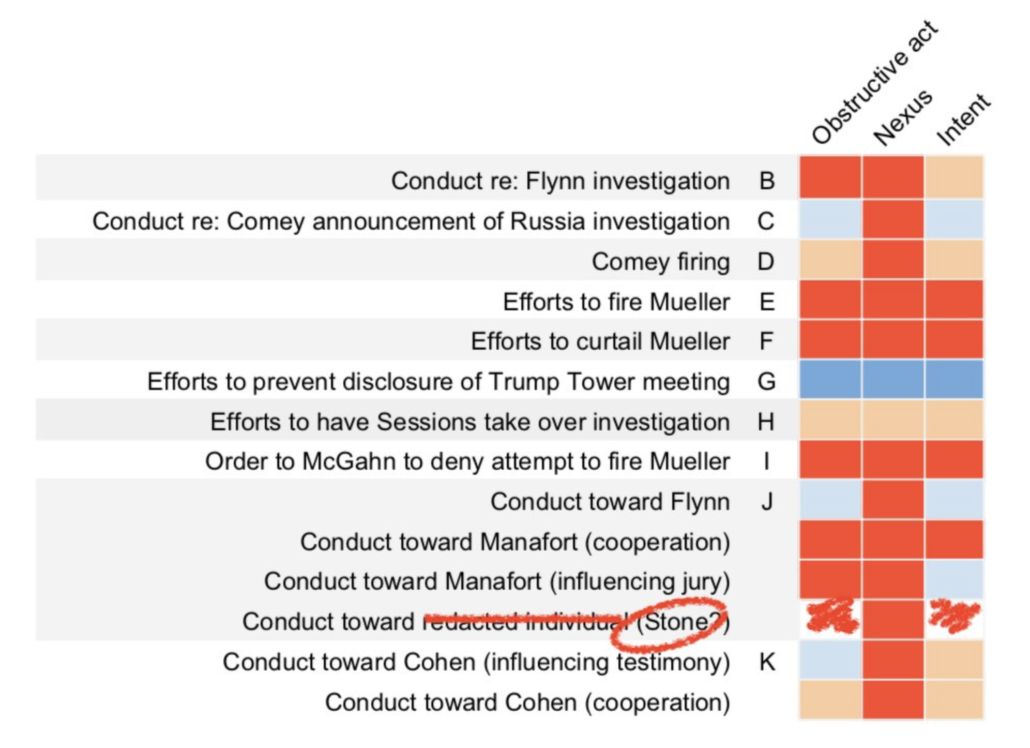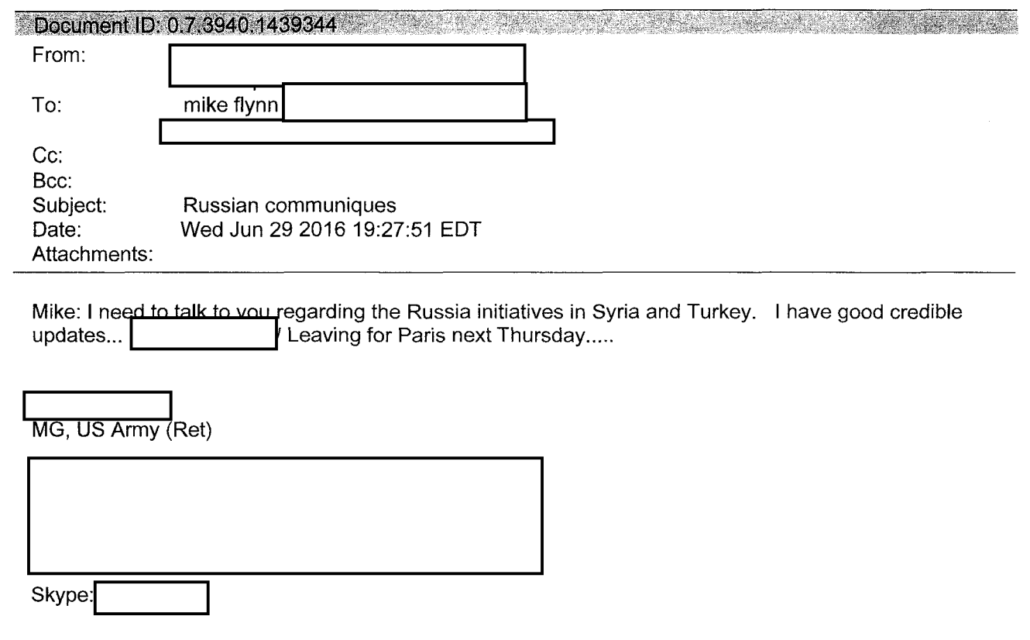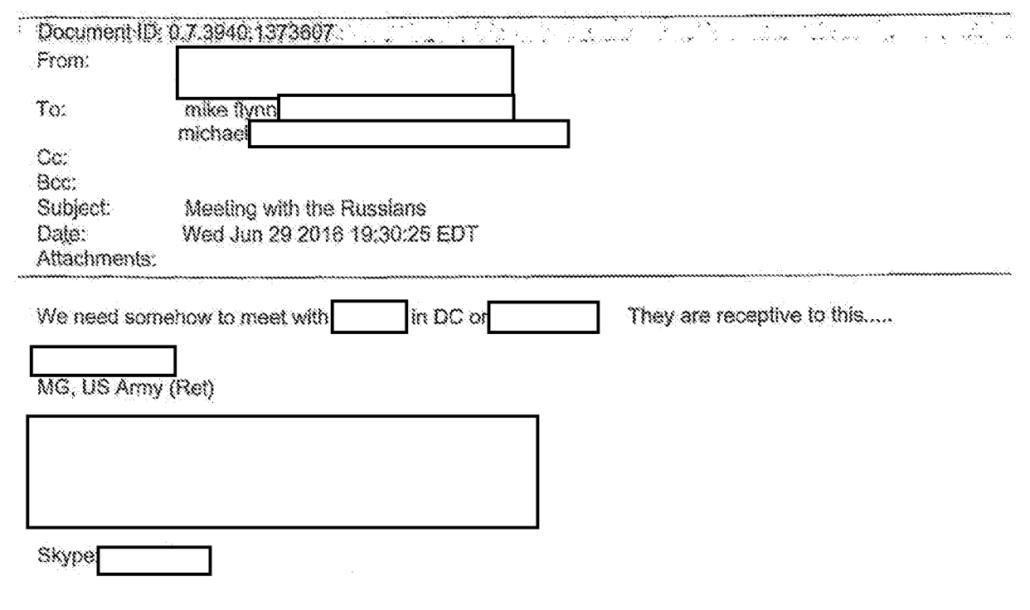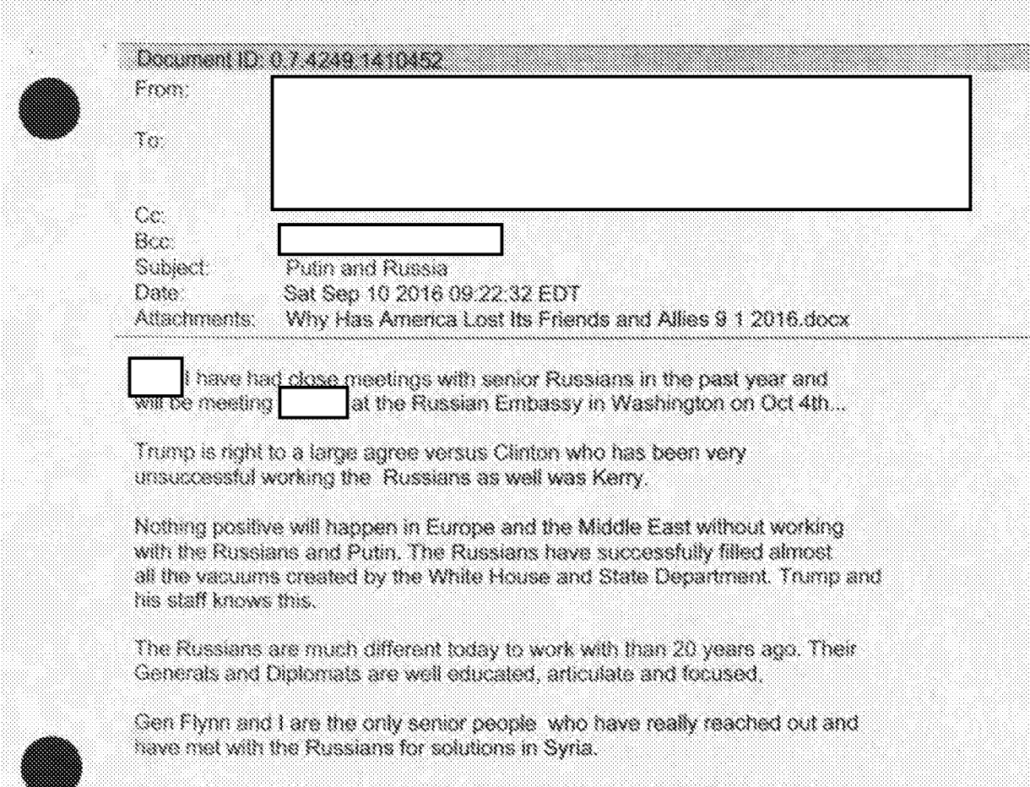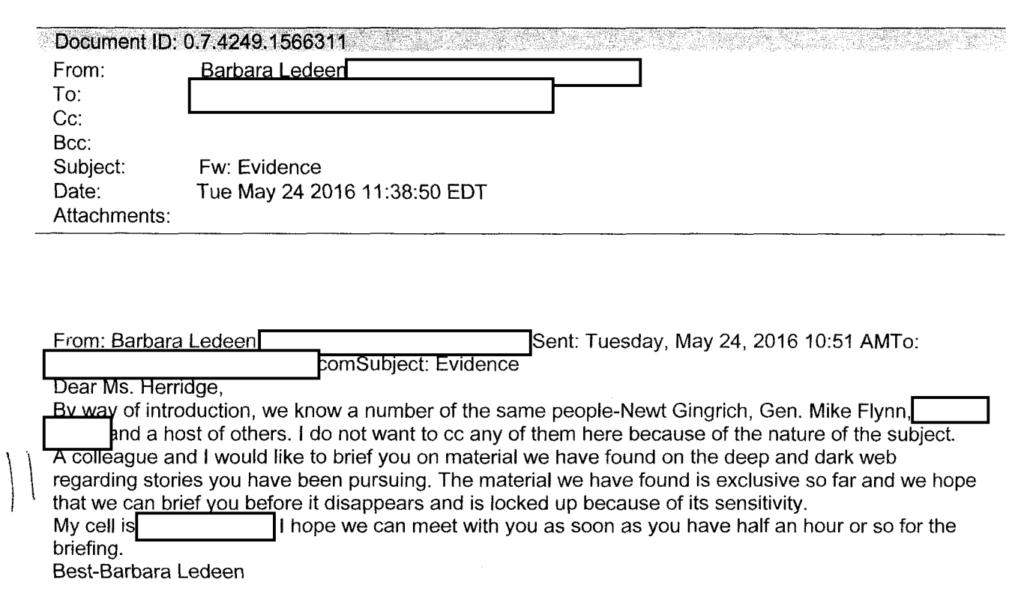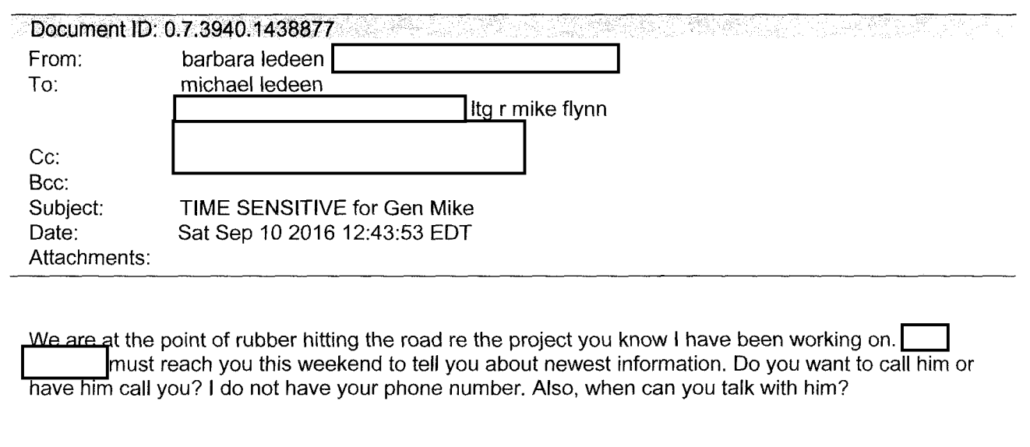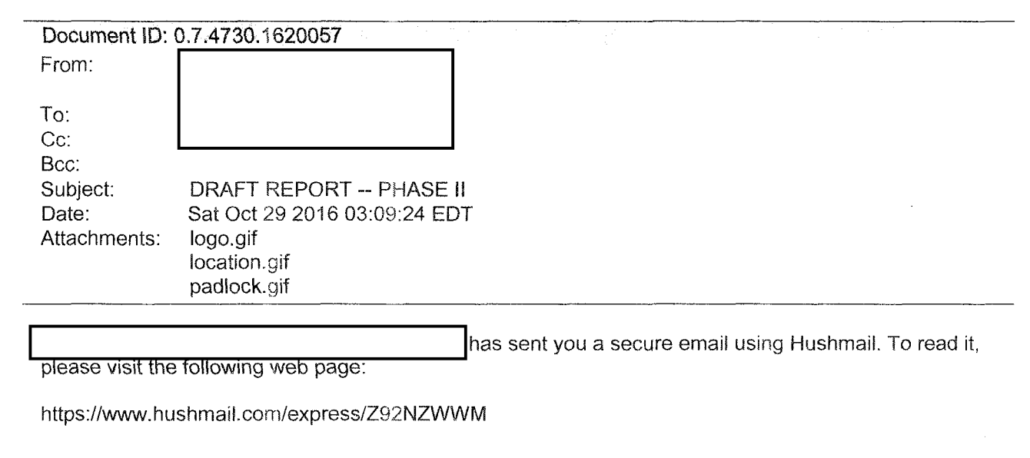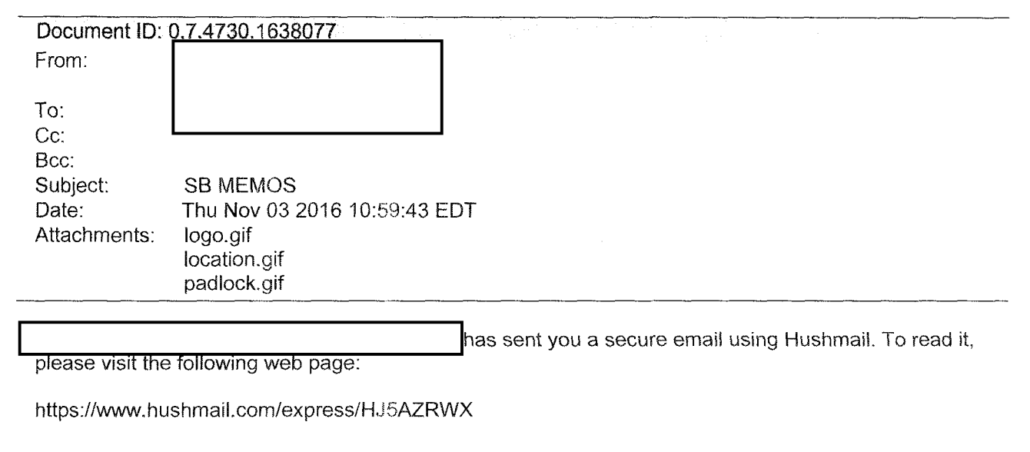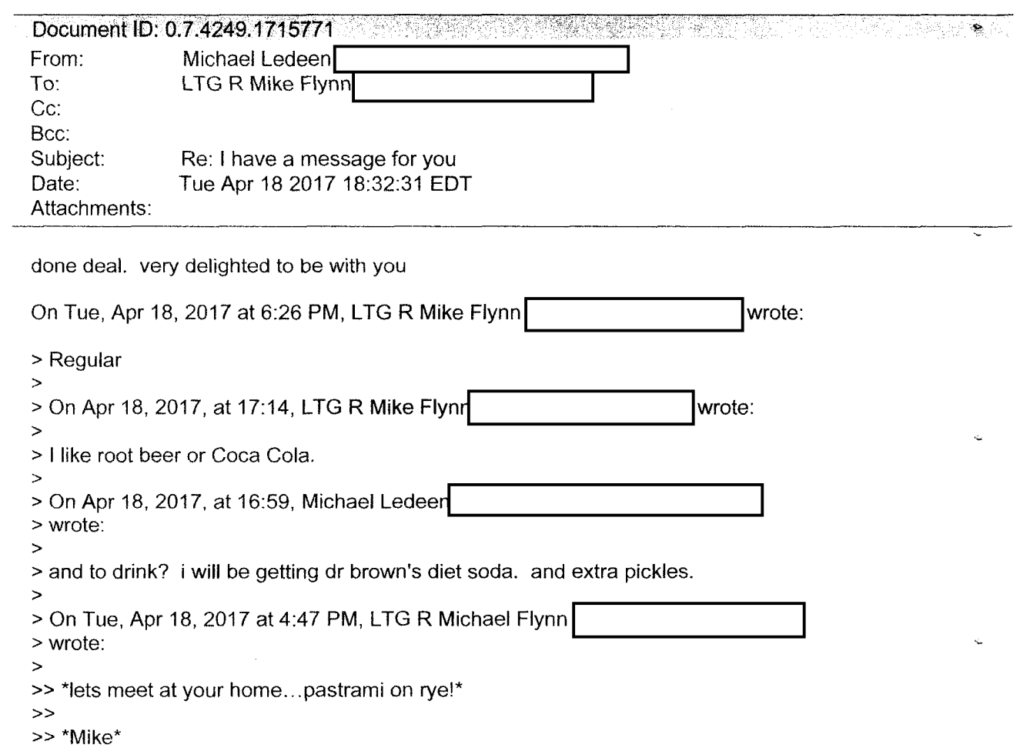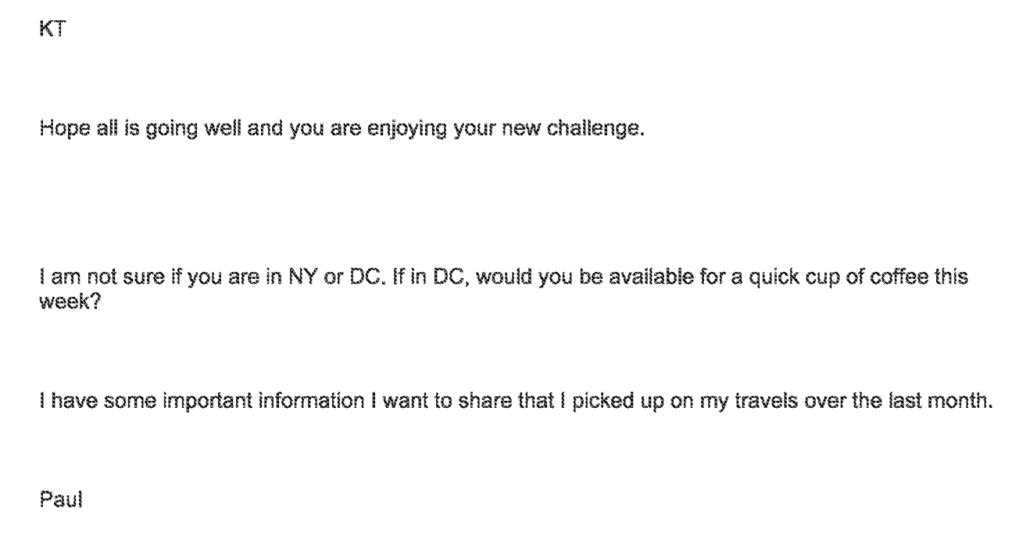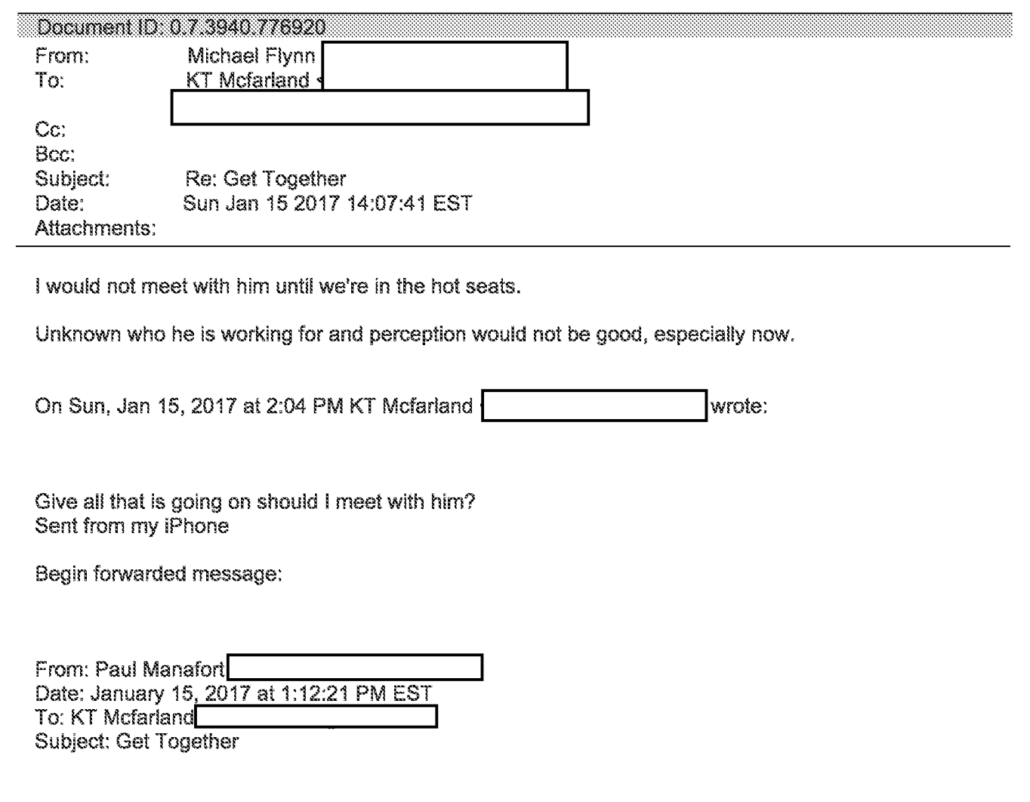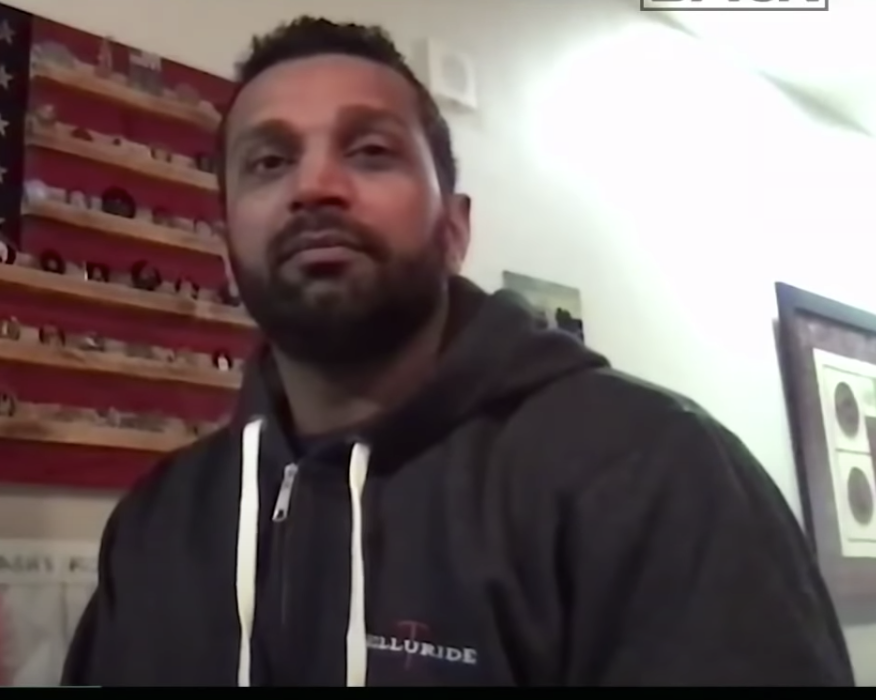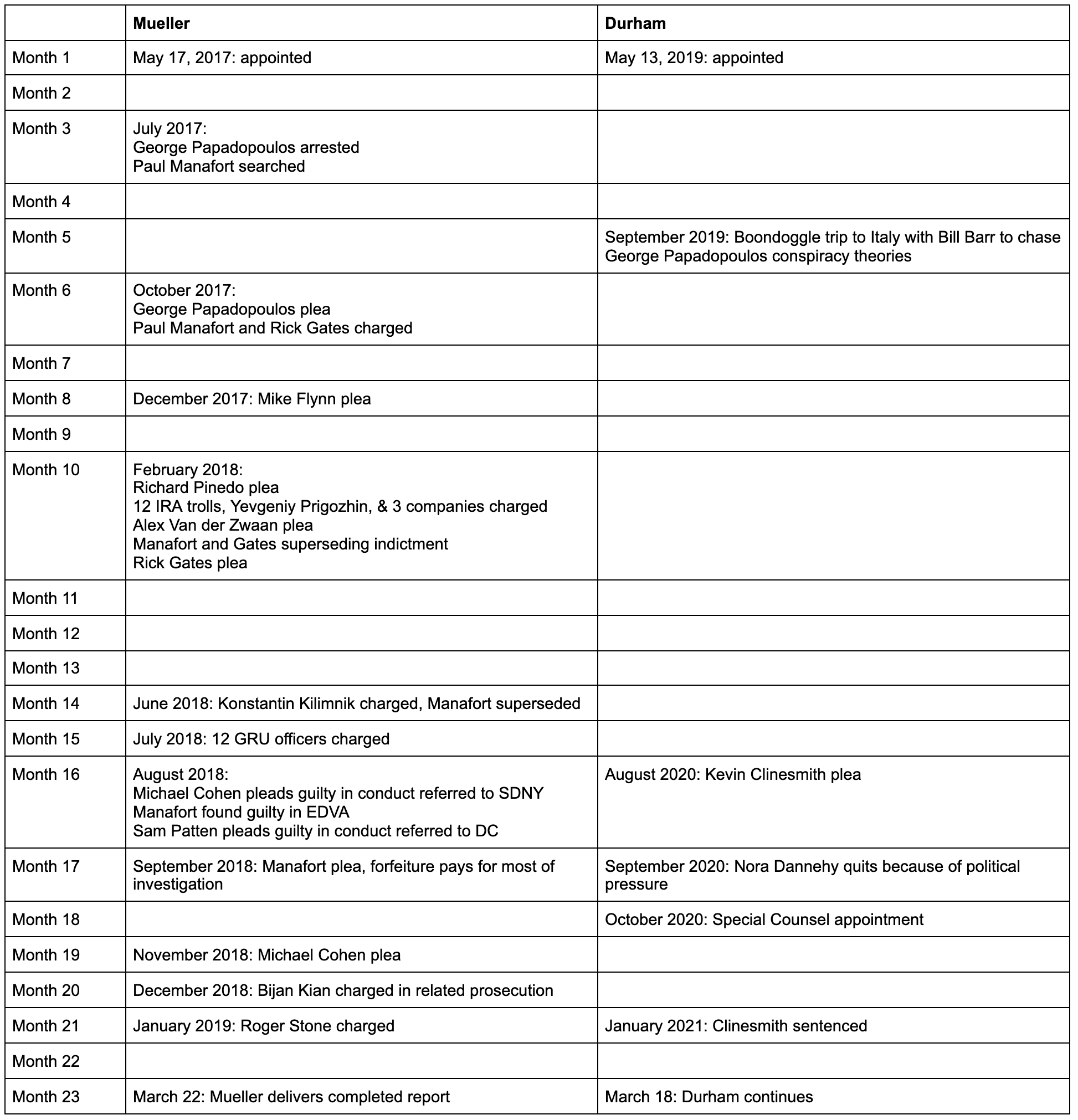A few weeks ago, the government turned over the backup to some Mueller interviews, including a number of Flynn interviews, at least one Steve Bannon interview, and a Corey Lewandowski one.
I’ve long been tracking the public Mike Flynn interview records (one, two, three). This post is an update incorporating, best as I could, the backup materials along with the interview reports. One primary Mueller interview may remain outstanding, along with his EDVA interviews regarding secretly being an Agent of Turkey.
Generally, the headings consist of one of three things:
- My summary of what got included in the Mueller Report (which is helpful to see what is new to this declassification)
- “Missing” and/or EDVA, which is a reflection of what Bijan Kian’s lawyers claimed they had gotten by June 2019
- New, with a description of the content
The backup fleshes out what Flynn was questioned about, and what remains sensitive. The government has released maybe half of the emails and pictures that Flynn was questioned about in interviews, based on the references to such things in the interviews themselves. In general, if BuzzFeed got the backup material, the link I’ve added should link directly to that item.
But key kinds of materials were withheld. For example, the following were withheld:
- Communications surrounding a 2016 Egyptian meeting (which Mueller suspected may have involved a bribe)
- A Kushner Blueprint for Russia sent to Flynn on January 1, 2017
- To the extent Flynn was shown it in interviews, the David Ignatius story reporting the Kislyak calls; that was generally withheld both for classification but also ongoing investigation (reflecting John Durham’s leak investigation into it)
- A January 5, 2017 email referencing the Logan Act
- An email about the Steele dossier
- A July 24, 2016 email involving Flynn making it clear he recognized Russia had hacked the DNC; Flynn would equivocate on the subject in the weeks after that
1. November 16, 2017: Trump appoint Flynn as NSA, first call with Putin, Israel vote, communications with Kislyak, December Kislyak call
Mueller attendees: James Quarles, Aaron Zebley, Brandon Van Grack, Zainab Ahmad
Entered: January 5, 2018
Nine months after Mike Flynn got fired, ostensibly for lying to the Vice President, Mueller’s team invited him for a mulligan on his January 24, 2017 interview in which he lied several times to the FBI. In advance discussions about that interview, Brandon Van Grack alerted Flynn’s lawyers that there were likely things Mueller’s team knew that Flynn’s did not.
There is information that you or your client might not be aware of. From where we’re sitting, there might still be value in sitting down with your client. We have a good sense of what Flynn knows and what Flynn doesn’t know.
As one indication of how badly Flynn had misled his attorneys, Rob Kelner expressed surprise that Flynn might be exposed for false statements from his interview at the White House.
Frankly, we are surprised by that. That is not consistent with what we have learned from press reports and other sources.
Zainab Ahmad warned,
You don’t know everything he knows.
This first interview, then, might be considered a test, whether Flynn was willing to tell the truth about his actions and those of Trump’s associates. He failed.
The interview front-loaded general information (how he came to work for Trump, though even there, later interviews would offer slightly different details as to timing), and questions about topics that Flynn was a tangential participant in — the DNC emails, the June 9 meeting, meetings with Egypt and Mueller’s suspicion that Trump got $10 million from them, ties with Qatar, Manafort’s role in the platform change, Brad Parscale’s operation, an the hush hush meeting with the UAE.
Only after asking questions about all that did Mueller’s team ask Flynn the same questions the FBI had asked him nine months earlier. He answered the questions the same way. He lied to hide the specific requests of Russia on Egypt’s UN proposal and he lied about whether he had discussed sanctions with Sergey Kislyak and discussed them with the Transition team at Mar-a-Lago with Trump.
Topics:
- How he came to work for Trump
- The $10 million campaign contribution (Mueller suspected it to be sourced from Egypt)
- Hillary’s emails (Flynn lied and claimed he had never looked for them)
- The DNC emails (Flynn lied about discussions about the topic)
- No knowledge about June 9 meeting
- The meeting with Abdel Fattah el-Sisi (and those suspected of brokering it); Flynn later admitted he met with Egyptians on more than one occasion
- A reference to Qatar
- Flynn’s views about Manafort, including the platform change
- Flynn’s views on Russia
- Flynn’s review of Parscale’s operations
- Early congratulation calls, including Egypt, a botched one to Taiwan, and the first call with Putin
- The meeting with Kislyak (Flynn claimed a back channel did not come up)
- The call with Sergey Kislyak on 12/6/16, which he always insisted he didn’t remember, and a follow-up on December 7
- The UAE meeting in NY
- The UN vote (Flynn repeated his lies from earlier that year, twice)
- The sanctions discussion (Flynn repeated his lies from earlier that year)
Backup
- 9/15/16 email to Bannon regarding Egypt (A)
- 12/7/16 email RE: Russian Ambassador Sergey Kislyak (regarding deferring all conversations until after inauguration) (B and C)
- 3/27/2017 NYT article describing Kushner meeting (D)
- 12/12/16 meeting keep UAE meeting to small circle (E)
- Another email on Egypt
That night, Flynn’s lawyers told him he had botched the interview.
That same evening, after concluding the first proffer, we returned to the Covington offices where my attorneys told me that the first day’s proffer did not go well and then proceeded to walk me through a litany of conceivable charges I was facing and told me that I was looking at the possibility of “fifteen years in prison.”
2, November 17, 2017: Israel vote, December Kislyak call, especially comms with Mar a Lago, re Ignatius Flynn said he had not talked sanctions, Mar a Lago with Trump, Flynn’s last meeting with Trump, “we’ll take care of you”
Mueller attendees: James Quarles, Aaron Zebley, Brandon Van Grack, Zainab Ahmad (Zebley and Quarles in and out)
Entered: 1/5/18
According to Flynn, overnight his attorneys coached him on language to
“get through” the next day’s proffer and satisfy the special counsel.
Flynn shaded the truth in his November 17 interview — about the Trump Transitions contacts with their predecessors, about his discussions about sanctions with KT McFarland and Steve Bannon, about why he left no written record of having discussed sanctions. Still, it was a better interview, and after being confronted with just a selection of the communications that had recorded these communications in real time, his story edged closer to the truth, even while denying things (such as the explicit nod to their calls from Kislyak) that were in FISA transcripts. Among the things Flynn admitted that day was that he “knew he got involved in U.S. policy when he called KISLYAK.”
In addition, Flynn provided Mueller’s team what must have been important insight. He said that when he resigned, “TRUMP was tired and visibly shaken or upset.” But then when Sean Spicer explained his resignation, “It bugged FLYNN that SPICER said he (FLYNN) had been untruthful.” Flynn’s sense of betrayal would, at times, be powerful motivation for his cooperation with Mueller, until it wasn’t anymore.
Topics:
- Calls with Kislyak, including January 12 one, (several iterations); Flynn lies abt Bossert speaking with Monaco, claims not to remember specifics of discussion with McFarland, makes excuses for not including sanctions in email, then backtracked somewhat, makes excuse for not telling Trump, claims he didn’t discuss it with Bannon
- Flynn’s lies to others, including knights of the round table
- His first FBI interview (several iterations)
- Covington asks who he spoke with after the call, includes people (like Ted Gistaro) whom he didn’t tell
- His resignation
Backup
- 12/29/16 Text messages to Sara Flaherty (possible some withheld on b3) (A)
- Some exhibit (possibly call records) eliciting a discussion about whether he and Michael Ledeen spoke about sanctions (B)
- 12/30/16 email from McFarland relaying the talking points (C)
- D [possibly comms from after he spoke with Kislyak]
- 12/31/16 Keith Kellogg email (E)
- Probably Ignatius article
Ongoing: Individual words redacted to hide an investigation into Ignatius’ source
3. November 20, 2017: Whether he told others at MAL, response to Ignatius
Mueller attendees: James Quarles, Aaron Zebley, Brandon Van Grack, Zainab Ahmad
Entered : 1/5/18
On November 20, Flynn inched still closer to the truth about what happened during the Transition period. He clarified a key detail about the $10 million infusion of cash that, Mueller suspected, had come from Egypt. Flynn described how Trump blamed him for not informing Trump that Vladimir Putin had been the first to call Trump after inauguration — something Trump had told Jim Comey.
And after being shown texts of the communications he had with Mar-a-Lago surrounding his calls with Sergey Kislyak, he effectively admitted that he had coordinated with Mar-a-Lago. There were still gaps. He had no explanation for why there was a meeting between him, KT McFarland, and Trump at 5PM, which would have been shortly after his call with Kislyak. Flynn inched closer to admitting that he and McFarland had agreed to leave mention of sanctions out of his text summarizing the call. And he admitted that he may have spoken about the sanctions discussion in some meetings with Steve Bannon at the latter’s townhome after the calls.
Once Flynn’s admissions about his own actions got closer to the truth, Mueller’s team asked him questions about Jared Kushner’s actions, especially a secret meeting with Mohammed bin Zayed in mid-December 2016.
Topics:
- The Infusion of cash (correcting earlier explanation)
- Theresa May arrival (included in Comey’s notes)
- Calls with Kislyak (including texts with Flaherty)
- Texts excluding sanction discussion
- Meeting with Trump at 5PM on 12/29
- Meeting with Bannon
- Kushner’s blueprint for Russia
- McFarland January 5, 2017 email
- January 6, 2017 ICA briefing
- Dossier
- Cohen’s Ukraine plan
- Someone who also believed CIA was bloated (and discussed UAE and Libya)
- Seychelles meeting
- Egypt package
Backup
Classified: Rex Tillerson? Some details about early January
Ongoing: Two b7A paragraphs in follow-up to Egypt package
4. November 21, 2017: Whether he told others at MAL, response to Ignatius, meeting with Trump [Missing]
Mueller attendees: James Quarles, Aaron Zebley, Brandon Van Grack, Zainab Ahmad; Mueller, briefly; Zebley left
Entered: 1/5/18
Having given Mueller’s team a passable explanation for his own actions, they focused the last interview on fine tuning that — particularly his admission to discussing the sanctions with Bannon — while getting him to talk about all the times he had been thrown under the bus by those who were in the know on the sanctions discussion, Bannon and McFarland.
Mueller’s team also got him to go over Kushner’s involvement in foreign policy, the relationship with Egypt, and the UAE meeting.
Topics:
- Logan Act
- Bannon’s townhouse (Bannon already knew content of conversation)
- Knights of the round table meeting, Bannon and McFarland silent
- Another instance of being thrown under the bus
- Kushner on Mexico
- Egypt
- Rick Gerson and Tony Blair, the UAE meeting (April 2017 Flynn contact with Gerson)
Backup [large b4 redactions likely hiding a bunch]
- Email on el-Sisi meeting
- 9/16/16 email between Ivanka and Phares
- Photo of Rick Gerson
- Kushner email on keeping meeting small
Large b4 redactions (trade secrets), addressing two topics, which leads into Kushner on foreign policy.
Mueller attendees: Brandon Van Grack, Zainab Ahmad
Entered: 1/5/18
The November 29, 2017 meeting, when the two sides were already discussing a plea deal, seems to be focused on answering questions that Mueller’s team didn’t know the answers to, unlike the prior proffers. This covered some of Flynn’s other legal exposure (such as his non-disclosure of foreign travel on his clearance form and his financial disclosure), just bits about his ties with Turkish officials, WikiLeaks and the Peter Smith attempt to find Hillary’s email, as well as other election year digital activities.
The interview ended with a discussion about language in a draft statement of offense admitting that Flynn had initially not told the government that he and Steve Bannon discussed sanctions. That language was cut from the final statement of offense, but it provides important background to interviews with others, including McFarland and Bannon.
Topics:
- Op-ed on Libya relying on WikiLeaks docs
- Discussions about WikiLeaks having Hillary’s emails, no direct contact
- WikiLeaks following Flynn starting in October or November 2016, DMs him on 12/5/16
- An NSC hire
- Flynn notes on index cards
- Meeting with Turkish officials, including sitting with Foreign Minister at Trump International Hotel in January
- More Turkish
- Svetlana Lokhova, including congratulations sent after election
- Jobs after DIA
- Meetings Flynn set up
- Foreign travel not included in SF-86, financial disclosure
- Peter Smith (original contact cyber business), probably downplaying extent of their contacts
- Rick Gates during transition
- Putin congratulatory phone call (possibly different details than original version), asked about a “signal”
- Rick Gerson notes on 12/14/16
- WikiStrat
- PsyGroup
- Donbass
- Meeting with Susan Rice
- Strong dollar
- Bannon townhouse language in statement of offense
Backup
- 10/6/16 Curtis Ellis email, possibly relating to an op-ed on Libya, using classified information that had shown up on WikiLeaks
- Possible b7A
- Possible SF-86 and financial disclosure form
- 12/4/16 notebook entries re Rick Gerson meeting
- Possible media report that Trump asked him about strong dollar
b7E redactions
Ongoing: Four b7A redactions in discussion of what he did after he left DIA.
6. January 11, 2018: November 30 meeting with Kislyak [Missing]
Mueller attendees: Brandon Van Grack, James Quarles
Entered: 2/22/18
Starts with admonishment.
In Flynn’s first interview after pleading guilty, Mueller’s team asked him more generic details — about how he used his classified phone, whether he used encrypted apps, whether he knew about the Seychelles meeting. It’s not clear he told truth about those questions or not, but he did provide other useful information, such as how often Erik Prince was at Transition headquarters.
Topics:
- Classified emails
- Flynn claims he only used classified phone with Susan Rice
- Encrypted apps (he preferred Signal), especially whether Bannon and Kushner used them
- Kislyak meeting, starting w/12/1/16 (obtained his bio), still claimed no back channel, did not recall sanctions discussion
- UN calls (including Nikki Haley’s, Bannon’s involvement)
- Rebuff of Manafort’s 1/15/17 email (Manafort at National Prayer Breakfast)
- UAE meeting
- Another discussion of fire-the-CIA guy (could be Prince)
- Prince at Trump Tower on daily basis, no knowledge of Seychelles
- Kevin Harrington: Russia trying to usurp US role
- Gitmo transfer
- Parscale meeting in September 2016
- Whom he has heard from post-plea
Backup:
Ongoing: Two b7A paragraphs between discussion of Manafort and Egyptian.
7. January 19, 2018: Flynn did not have specific recollection about telling POTUS on January 3, 2017
Mueller attendees: Brandon Van Grack, James Quarles, Andrew Goldstein
Entered: 6/21/18 [note: several other 302s have an entry date of 5/21, so this may be a typo]
In Flynn’s January 19, 2018 interview, he protected the President. He said, over and over, that he had no idea if he had spoken directly with Trump about sanctions, or even what he had said to KT McFarland. The Mueller team did not prompt him with information that might have been useful to force him to admit that he had told Trump.
Flynn did, however, admit that Trump had a better understanding of the timeline of Flynn’s calls with Kislyak than Flynn did, including a probable reference to Trump’s involvement in the December 22 call about Egypt.
This 302 was not finalized until June 21, a testament to how important Flynn’s claim not to remember discussing this with Trump was to Mueller’s case.
Topics:
- Contacts with Mar-a-Lago, claims he assumed McFarland talked to Priebus and Bannon
- Meeting with Bannon on 1/1/17
- Whether it came up on 1/3/17
- Ignatius, now says he’s worried he broke the law
- His interview (with b5 that may have covered discussion within WH afterwards)
- Trump corrects his date
- Whether Trump specified calls with Daily Caller
- Correcting Nikki Haley on Crimea
Backup:
- Possibly Ignatius article
8. January 24, 2018: [New] Questions about George Nader and Erik Prince
Mueller attendees: Brandon Van Grack, Zainab Ahmad
Entered: 2/22/18
This interview took place in the wake of the George Nader detention at the airport, and reflects the first review of Nader’s phone. Prince was also a focus.
Topics:
- Whether he recognized Nader
- How Flynn arrived to the MbZ meeting and what was discussed
- Whether Russia was discussed
- Flynn’s meeting with Rick Gerson in December (which Tony Blair attended)
- Erik Prince’s plans to outsource the IC and whether he was getting $$ from UAE
- Prince’s presence in Trump Tower after the election
- Extended b7A discussion
Backup:
Mueller attendees: Brandon Van Grack, Zainab Ahmad, Andrew Weissmann, Aaron Zelinsky
Entered: 5/21/18
On April 25, 2018, after most Trump associates had had their first interviews and the Mueller team had begun to unravel Roger Stone’s role, Flynn had his first interview discussing those issues. It appears he shaded the truth, disclaiming to have been certain that Russia had hacked the DNC and disclaiming awareness of all the discussions in the campaign about WikiLeaks.
Nevertheless, Flynn likely said things at this interview that betrayed knowledge of far more, even if he didn’t understand that.
Topics:
- How he got involved in the campaign, including discussions of Russia and Sam Clovis’ role in it, dates involvement from 2/22/16; officially joined June 2016
- RT trip
- Regular contact with retired military officer, including email 6/29/16
- DNC hack, Flynn claims he was uncertain abt attribution [break to walk Flynn through specific dates], Ledeen on missing emails, no memory of Stone, contact with FBI
- Debate prep included “leverage” discussions about Assange, Flynn did not know under indictment (??)
Backup:
Mueller attendees: Brandon Van Grack, Aaron Zelinsky
Entered: 5/21/18
In this interview, Stone prosecutor Aaron Zelinsky tried to pinpoint Flynn’s vague memories from August 2016, specifically regarding his first flight with the campaign on August 3, 2016, in the middle of a period when Stone was in close contact with the campaign about WikiLeaks. In this interview, Flynn admitted that he had much higher certainty that Russia had done the hack than he had said weeks earlier.
Mueller’s team also asked him what amount to counterintelligence questions and started to figure out who in the FBI was undermining their case in Flynn’s name.
The meeting ended with a question about who used his IC badge to enter a classified facility on April 3, 2017.
Topics:
- First trip on plane was 8/3/16, to Jacksonville, Flynn’s own assessment would be high likelihood Russia did the hack
- Russian born investment capitalist talked about Clinton’s emails a lot
- WikiLeaks reaches out to Flynn on 6/22/16 via publisher (recurring)
- Flynn email 7/24/16 about attribution showing certainty–he walked back his certainty by August 3
- Series of emails with someone military who moved to DIA, around first meeting with Manafort on 6/23/16
- Question abt bots and social media
- Email 11/2/16 may have clicked on the link
- Trump’s 7/27/16 comment, specifically asked if Stone put it in his head
- Contact in USDI
- Retired general
- 6/29/16 email from someone he was respectful of
- Email 9/10/16 about speaking to Russia on Syria, someone pro-Russian
- Dmitri Simes
- Email sent to someone he met in August 2015 on 8/20/16
- Contacts in FBI
- Digital response team v. Parscales
- Email 10/9/16 with link to Podesta
- Extended discussion of Erik Prince, including transition
- DIA visit on 4/3/17 (discussion about his IC badge)
Backup
Ongoing: Two b7A paragraphs abt discreet subject/person between discussion about WikiLeaks and about Prince.
11. May 4, 2018: [New: Manafort, Ledeen, and badging]
Mueller attendees: Brandon Van Grack, Aaron Zelinsky
Entered: 5/21/18
The next meeting started with the unexplained use of his badge (Flynn claimed he still hadn’t found it). It hit on his efforts to find Hillary’s emails with Barbara Ledeen, their search for the emails on servers in Ukraine, and a long call Flynn had with Manafort in June, when the WikiLeaks effort first began.
Topics:
- Use of his badge 4/3/17
- Barbara Ledeen, including password protected email on 10/29/16
- Servers in Ukraine
- Micro-targeting
- Hour-long call with Manafort on 6/23/16; first met Manafort on 6/30/16
- The dossier and ICA briefing
- Transition meeting, some Captain sharing information, and KT McFarland
Backup:
12. May 17, 2018: [New: Ledeen’s tampering]
Mueller attendees: Brandon Van Grack, Zainab Ahmad
Entered: 6/1/18
Most of this meeting focused on ways that Flynn’s people were undermining the investigation, with a focus on Barbara Ledeen and Sara Carter (who published several false stories about the investigation). It also returned to the issue of what secure communications he used.
Topics:
- Ledeen’s probes of the investigation
- Sarah Carter’s propaganda (starting with possible immunity on 3/30/16)
- Discussions about the investigation
- Secure communications
Backup:
Mueller attendees: Brandon Van Grack, Zainab Ahmad
Entered: 5/29/18
While this meeting returned focus to two key prongs of the Middle Eastern part of this investigation, UAE and Qatar, it also probed more about Flynn’s current job and the FBI agents tracking his case.
Topics:
- Qatar
- 12/12/16 Trump Tower meeting, possibly with QIA
- His then-current consulting gig
- FBI agents, including retired, who are tracking his case
Backup
b3: An entire discussion covered by b3
14. June 13, 2018: [EDVA, Missing]
15. June 14, 2018: [EDVA, Missing]
16. June 25, 2018: [EDVA, Missing]
17. July 26, 2018, [EDVA, Missing, possibly two 302s]
18. September 17, 2018: [New: someone else’s tampering, probably Derek Harvey]
Mueller attendees: Brandon Van Grack, Zainab Ahmad
Entered: 9/28/18
The entirety of this, Flynn’s last meeting with the Mueller team, seems to focus on the role of Derek Harvey, whom Flynn hired into the NSC, and who played a key role in helping Devin Nunes undermine the entire investigation.
Topics:
- Relationship with someone on HPSCI, probably Derek Harvey
September 26, 2018: Proffer response on meetings with Foresman
January 28, 2019: [EDVA Missing]
February 28, 2019: EDVA
April 5, 2019: [EDVA Missing]
June 6, 2019: EDVA — Flynn blows up his plea deal


